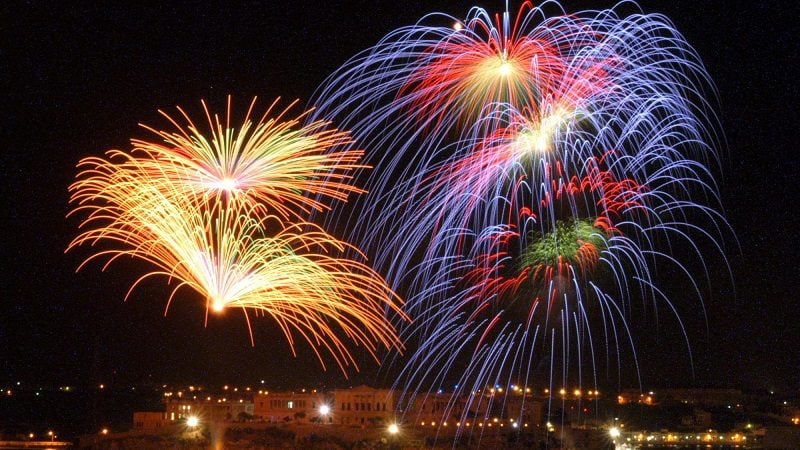I first came to Malta a year after it joined the EU to perform in a theatre production at St James Cavalier in Valletta.
‘Most of All’ was a collaboration between Maltese and Scottish actors and the performance arose from observations we made about each other’s cultures. It was mainly a comedy and I remember some of the lines because they still speak to me, but differently.
A few days into my stay and I noticed smoke on the horizon.
‘It’s probably a fireworks factory,’ I was told.
Call me naïve but coming from Scotland, this was a bit of a novelty. The experience made its way into the performance with my character enthusing about the attractions of Malta: ‘Once a year, every year, you get to see a fireworks factory explode!’
The darkness of this comic quip has intensified since I moved here 11 years ago. There’s been multiple deaths on account of fireworks but the one that sticks in my mind was at Gharb in 2010 when six people were killed, including five members of the same family.
Seven years later, the Planning Authority approved the development of a new fireworks factory in Gharb, 300 yards from an historic chapel.
While I was writing this piece, a man died after being seriously injured in a fire that broke out near a fireworks factory in Żebbuġ.
To say we’re talking of a fireworks funeral pyre is not a joke. If we want to excuse this as tradition, then it’s a deadly one.
In 2007, the police historian, Eddie Attard, was intending to write a book on the subject, describing his plans as “a tribute to those who died so that people can enjoy the spectacle fireworks provide”.
One of these deaths occurred in 1963 when a boy was beheaded by a petard while watching a fireworks display in Għaxaq. Neither ‘enjoyment’ or ‘spectacle’ spring to mind.
By chance, the police and St James came together during my first visit to Malta. Alongside rehearsals there was an art exhibition and a police officer was stationed in the gallery. Amused, I asked my Maltese friend if art theft was a common crime. “These paintings are the work of the police,” was the reply.
I’m familiar with police who mount horses not art exhibitions so this was another element that made its way into our show. My character waxed lyrical about the cultural prowess of the Malta Police, eulogising about their balletic capabilities.
That tutu-twirling PC Picasso seems a world away from where we are now with our State-captured police force whose Police Commissioner, duty-bound to Master Muscat, does little to nothing in the face of massive money laundering scandals, the assassination of a journalist and, by calculated inaction, allowed US law enforcement agencies to arraign Ali Sadr, owner of the now-closed Pilatus Bank, who faces a possible 125 years in a US jail.
‘The police work in silence,’ said the Police Commissioner recently.
So silently that the word ‘arrest’ is never spoken and the law courts have ensured that attempts to open inquiries into Mizzi and Schembri were blocked by techniques adapted from the Kafka book of rules.
Orwell would be turning in his grave, most of all in response to this week’s Ministry of Truth press release. Having foreclosed the normal routes of justice for achieving the normal task of initiating a criminal investigation, the Ministry of Tourism produced what’s possibly their finest piece of spin yet, and there’s so many to choose from.
This is no objective press release but riddled with insipid lies and propaganda. It begins with self-congratulations for ‘untangling the web of deceit spun against Minister for Tourism Konrad Mizzi’ and ends with the same self-adulation for ‘withdrawing distracting libel cases’.
These ‘distracting libel cases’ would have included evidence from Nexia BT’s Karl Cini about emails relating to 17 Black, the Dubai company owned by Yorgen Fenech for pumping kickbacks into Mizzi and Schembri’s Panama accounts.
Cini is a past master of theatrical arts. Treading the boards from ‘Legally Blonde’ to Illegally 17 Black, he could bring down the house by telling us who owns Egrant.
Theatre was my first connection with Malta and the creative vibrancy of St James Cavalier was a pulling factor. Years on and this hub of activity is as deadly as last year’s capital of culture.
The energy that attracted me to Malta has acquired a bitter taste. Beneath its optimism were always murmurs of corruption but now they drown everything out. Even the artists don’t protest.
Padlocks displaying messages of peaceful resistance are defaced by government supporters under cover of the night.
I miss the sight of the EU flags that hung proudly everywhere when I first came to Malta. Most of all, I lament the loss of a country that once breathed promise but has chosen instead to choke the very life from itself.












